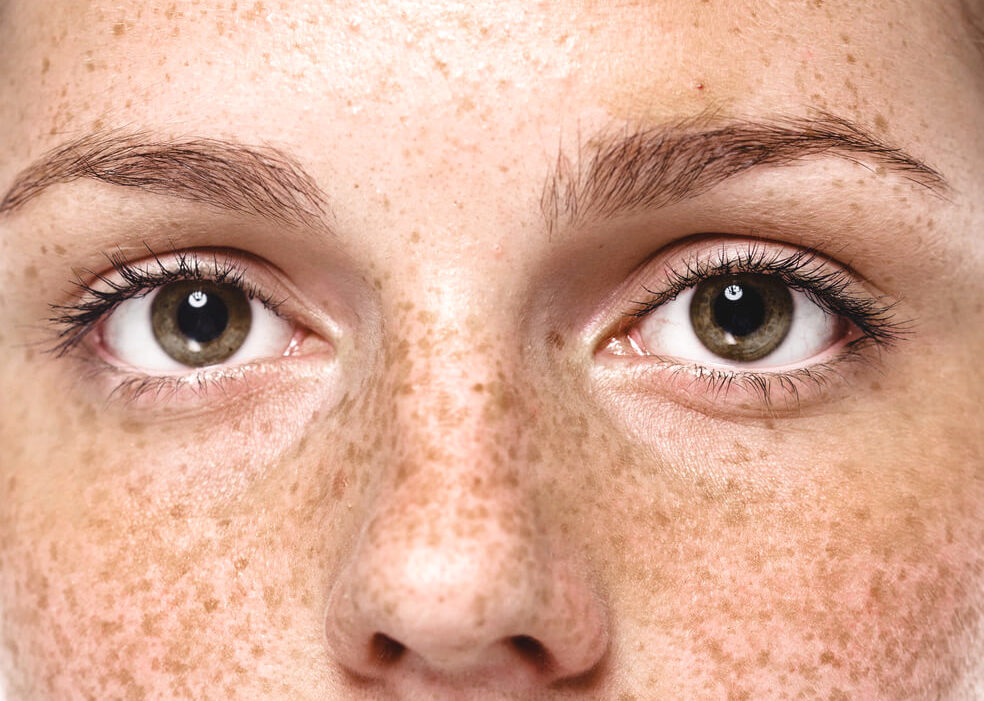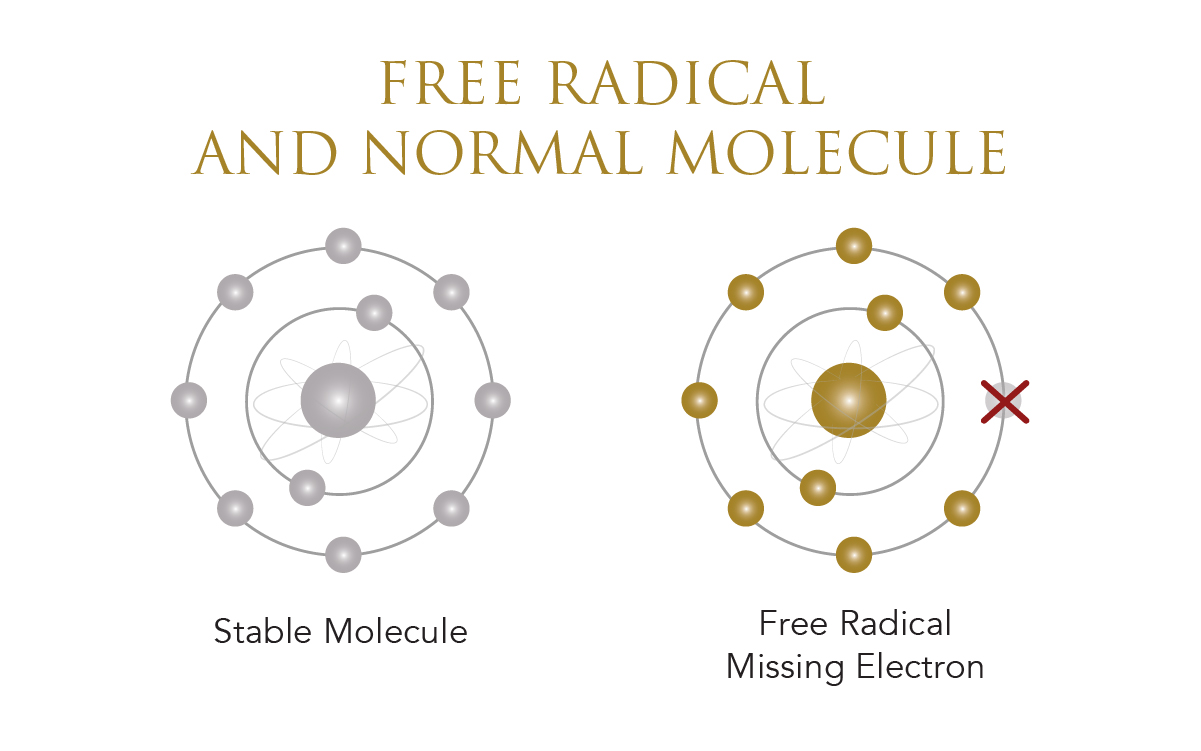Why Anti-Pollution Skin Care Should Be Your Top Priority

From the air that you breathe to the food that you eat to the cleaning products you use in your home, your body, along with your skin, is exposed to pollutants on a daily basis.
As you can imagine, this isn’t going to be doing your skin any favors, which is why anti-pollution skin care should be your top priority.
What is Pollution Doing to Your Skin?
Before you begin to take a look at some of the anti-pollution skin care products out there, it is important to first understand exactly why you need them…
What is the pollution all around you actually doing to your skin?
Well, no matter where it comes from, pollution is made up of toxic particles. When these are absorbed by the skin, free radicals are formed.
What are free radicals?
They are molecules that are missing an electron. In order to replace this missing electron, they attack nearby cells, trying to steal their electrons. This then turns those molecules into free radicals too.
This damage occurs quite deep in the skin, and it isn’t long before the lipids and tissues that surround the free radicals also end up damaged.
This is why one of the biggest skin effects of pollution is an increase in fine lines and wrinkles, due to the fact that the collagen and elastin in the skin end up degraded. This also means loose and sagging skin, while any existing wrinkles are likely to deepen.
The fact that free radicals also damage the skin’s protective barrier means that pollution is also responsible for dryness and dehydration. This is because the skin’s barrier is not able to properly function, meaning that it cannot maintain the skin’s moisture levels.
Inflammation is a common result of pollution too, and this means flare-ups in inflammatory skin conditions, such as:
- Acne
- Rosacea
- Eczema
- Psoriasis
The way in which pollution particles clog up the pores is another contributing factor to an increase in acne breakouts.
If all of that was not enough…
Pollution has also been found to lead to a significant increase in hyperpigmentation. A study that was carried out in Germany showed that those who live in the city tend to experience around 22% more hyperpigmentation due to pollution than those who live in more rural areas.

Convinced that you need to make anti-pollution skin care more of a priority?
Here’s what you need to do…
Make Sure that You Are Cleansing Every Evening
You likely already know that cleansing once a day is so important for the health of your skin. However, if it is pollution that you are most concerned about, you should save this cleansing session for the evenings.
This will ensure that you cleanse away all of the pollutants that have settled onto your skin over the course of the day. While your skin will already have absorbed some, clearing away the rest on a daily basis will go a long way in protecting your skin from the more severe effects of pollution.
Do you live in an extremely polluted location?
If you live in a city, this is highly likely. 92% of the people around the world who live in cities happen to live in a city that does not comply with the air quality standards set out by the World Health Organization.
So, if you do live in a city, you may want to consider double cleansing…
Never heard of this before?
It refers to cleansing with an oil-based cleanser first, as this is the best way to dissolve away oil, dirt, makeup and pollutants. You would then follow this up with a water-based cleanser, which will not only remove any residue left behind by the first cleanser, but will also hydrate your skin.
You could also look into an electronic cleansing brush…
These have been proven to be more effective than a person’s hands when it comes to cleansing the skin of sticky particles, such as the soot that is often found in air pollution.
Regularly Exfoliate To Go a Little Deeper
Cleansing is great for clearing away the pollutants on the surface of the skin, as well as those on the outer edges of the pores.
However, what about those pollutants that have already begun to delve their way deeper into your skin?
This is where exfoliation comes in…
You have two main options when it comes to exfoliation:
- Physical Exfoliation – using something abrasive, such as a scrub or a sponge, to physically scrub the skin. This clears away dirt, pollutants and dead skin cells from the surface of the skin, as well as from within the pores
- Chemical Exfoliation – making use of certain chemicals (many of these are naturally-derived) to dissolve away dirt, dead skin cells, pollutants and more, enabling them to be easily washed off the skin. Some chemical exfoliants are better than others at thoroughly clearing out the pores, but make sure that you choose one based on your skin type
Whichever form of exfoliation you choose, this is something that should be done around twice a week. Those with sensitive or dry skin may want to drop this down to once a week, while those with oily skin may want to increase this to three times a week.
Make Use of Antioxidants
Remember those free radicals that were mentioned earlier?
The unstable molecules that are missing an electron, and then go about causing serious damage to the skin…
Well, there’s one way to stop them from causing this damage!
The answer lies in antioxidants.
How do antioxidants help?
Antioxidants contain several spare electrons. When they come across a free radical, they give that free radical one of their spare electrons, therefore neutralizing the free radical and turning it into a normally-functioning molecule.

Sounds pretty impressive, right?
This is why antioxidants are a key part of anti-pollution skin care. If you take a look at some of the dedicated anti-pollution skin care products out there, you will notice that many of them are packed with a wide array of antioxidants.
But which ones are the best?
When it comes to dealing with pollution, the antioxidants that you really want to be using are:
- Vitamin A – exfoliates the skin and encourages skin cell turnover, enabling the skin to purge itself of pollutants
- Vitamin C – a powerful antioxidant that also brightens the skin, which can help to target the discoloration that pollution usually brings about
- Vitamin B3 – has been proven to successfully reduce the damage that pollution causes to skin cells, while also enabling them to recover from existing damage much better
- Green Tea Extract – protects the skin from pollution while encouraging the healing of skin cells. It also counters the inflammation that pollution causes, and boasts anti-carcinogenic properties too
- Resveratrol – research shows that resveratrol can brighten the skin, protect against hyperpigmentation, and protect the skin’s collagen from damage, therefore preventing fine lines and wrinkles
While an antioxidant-filled moisturizer is definitely important, try to ensure that you are using an anti-pollution serum too.
Why?
Because a serum is more lightweight than a moisturizer, meaning that it can penetrate deeper into your skin. This means that the antioxidant will be able to work at a deeper level, bringing about changes that are more significant and permanent.
Eat An Antioxidant-Rich Diet
While nourishing your skin with antioxidants from the outside is important, you should also be feeding your skin with these vital ingredients from within.
Your diet plays a huge role when it comes to the health of your skin, as well as in terms of how well your skin is able to defend itself against the damage that pollution causes.
In the same way that you apply antioxidants to your skin through your skin care products, make sure that you are eating plenty of antioxidants too.
Some of the best dietary sources of antioxidants include:
- Dark Chocolate – with even more antioxidants than blueberries and raspberries, dark chocolate brings with it a number of other health benefits too. It significantly raises blood antioxidant levels, prevents high blood pressure, reduces inflammation, and minimizes a person’s risk of developing heart disease
- Blueberries – when it comes to fruits and vegetables, blueberries are the winner in terms of antioxidant content. The antioxidants within blueberries are especially effective when it comes to tackling the symptoms of aging
- Artichokes – not only will you find several vitamins and minerals in artichokes, as well as dietary fiber, but this vegetable also boasts a few special antioxidants, such as chlorogenic acid. This compound has powerful anti-inflammatory and anti-carcinogenic effects, both of which can help the body and skin to deal with pollution. Keep in mind that cooking method matters – boiling and steam increases the antioxidant content of the artichoke, while frying reduces it
- Goji Berries – these berries are known as superfoods due to their high content of vitamins, minerals and antioxidants. One antioxidant group in particular, known as lycium barbarum polysaccharides, is known to be able to significantly reduce skin aging
- Red/ Purple Cabbage – packed with vitamins and antioxidants, including a group called anthocyanins. These are what give the vegetable its vivid color, and also boast fantastic anti-inflammatory and anti-carcinogenic properties
While eating more of those above foods will definitely help, you should try to keep your diet as fresh as possible. Choose whole foods over processed foods, as filling your body with toxins from the foods that you eat will only exacerbate the damage that the pollution will cause.
Reduce Indoor Air Pollution
You may think that your skin gets a reprieve once you step into your house, but the opposite is often true…
Did you know that many indoor homes actually have poorer air quality than the polluted air outdoors?
This is due to the many sources of air pollution inside the home, coupled with the fact that modern homes are built to be so airtight.
Some of the most common sources of indoor air pollution include:
- Dust
- Mold or fungus
- Chemicals from cleaning products, furniture, paint, carpets, and other commercially manufactured products
- Smoke and carbon monoxide, which can come from anything from a candle to a water heater
Don’t worry, there are ways in which you can clear air pollution from the air in your home, ensuring that your house becomes a safe haven for your skin.
Begin by cutting back on the number of chemicals you use in your home, especially when it comes to cleaning products. There are so many natural alternatives now available, so take a look and see what else is out there.
Quality air filters can also help. It may be tempting to go with cheaper alternatives, but, don’t forget, you get what you pay for…
Try improving the ventilation in your home too. Focus on areas where stale and polluted air would tend to gather, such as in the kitchen or bathroom. There are some ventilation systems out there that can really make a huge difference to the air quality in your home.
One more thing that you can do to improve the air quality in your home while also adding a decorative touch is to purchase a few purifying house plants. Certain plants are known to absorb pollutants, preventing them from causing any damage to your skin.

Plants to consider include:
- Areca Palm
- Rubber Plant
- Philodendron
- Dwarf Date Palm
- Boston Fern
Many of these plants are easy to keep, and all have been proven to improve air quality.
Pollution can really take its toll on your skin, and it can sometimes seem as though it would be impossible to completely get away from pollution. While this may be the case, there are still many steps that you can take to protect your skin, as well as the rest of your body, from the damage that pollution can cause, which is why you should be making anti-pollution skin care your very top priority.

